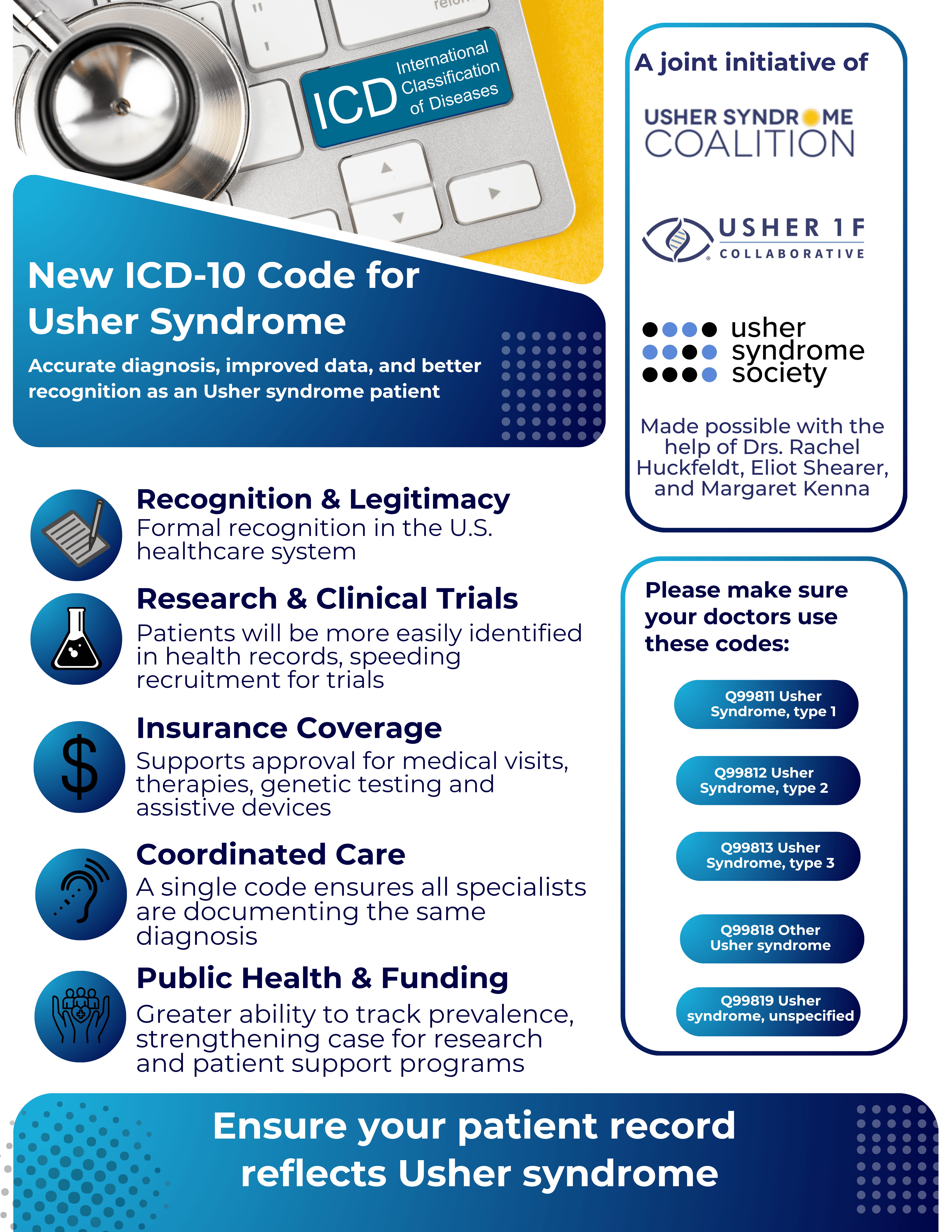
ICD-10 (International Classification of Diseases) codes are the worldwide standard for describing diagnoses, conditions, and reasons for health care visits. In the U.S., ICD-10-CM is the national standard for diagnoses.
Until now, Usher syndrome has never had its own ICD-10 code. Physicians had to classify hearing loss, vision loss, and balance problems separately, which obscured the true diagnosis. This left patients invisible in medical records and statistics, and made it harder to access insurance coverage for needed care.
The importance of specific ICD-10 codes has become clear in conversations with other rare disease advocates. The Usher 1F Collaborative applied for a code for Usher syndrome, in partnership with the Usher Syndrome Coalition, the Usher Syndrome Society, and with the invaluable support of Drs. Rachel Huckfeldt, Eliot Shearer, and Margaret Kenna. After three rounds of CDC hearings, we are thrilled to announce success: a dedicated ICD-10-CM code for Usher syndrome, with subcodes for types 1, 2, and 3.
Effective October 1, 2025, please make sure your doctors use these codes:
- Q99811 Usher syndrome, type 1
- Q99812 Usher syndrome, type 2
- Q99813 Usher syndrome, type 3
- Q99818 Other Usher syndrome
- Q99819 Usher syndrome, unspecified
Why this matters:
- Recognition & legitimacy: Usher syndrome will no longer be hidden under vague codes but will have formal recognition in the U.S. health care system.
- Insurance coverage: A precise code supports approval for medical visits, therapies, genetic testing, and assistive devices.
- Coordinated care: Because Usher syndrome affects hearing, vision, and balance, a single code ensures all specialists are documenting the same diagnosis, improving communication and treatment.
- Research & clinical trials: Patients can be identified more easily in health records, speeding recruitment for trials, which is critical as gene therapies move forward.
- Public health & funding: Federal and state agencies will be able to track prevalence and allocate resources, strengthening the case for research and patient support programs.
This is a milestone: a dedicated ICD-10-CM code finally gives Usher syndrome the recognition it deserves, paving the way for better care, access, and progress toward treatments and cures.







